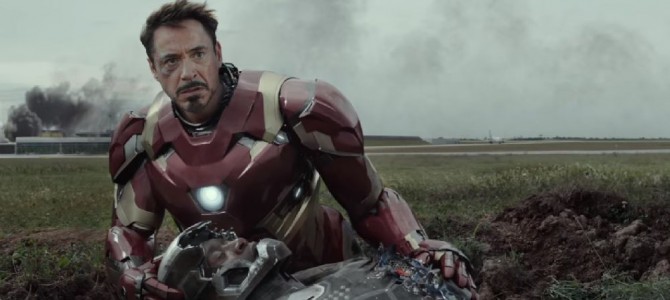
The newest superhero movie, “Aquaman,” is coming out Friday. With little else to be excited about (the other choices are a Nicholas Cage movie and a rom-com with Jennifer Lopez), it is certain to be a blockbuster. It is also certain that film buffs and critics will deride it as yet another silly superhero movie — especially Aquaman, one of the more bizarre superheroes of the comic book world. He can swim very quickly, talk to sea creatures, and wield a magic trident.
In his usual curmudgeonly fashion, professional truth-teller Matt Walsh articulates many people’s problem with superhero movies. He believes they are childish, pointless, commercial, and unoriginal. As he puts it, “These films are basically 95-minute Mattel commercials, only with less plot and worse acting.” It clearly bothers him that, despite all this, American viewers continue to spend their hard-earned money on each new iteration. One can thus see the superhero movie phenomenon as evidence of cultural decline.
It’s telling that Walsh admits his alternative is another action movie with an aging Liam Neeson playing a snowplow driver avenging his son by taking down a drug cartel. Apparently, this is what adults like Walsh go to movie theaters to watch: “As Scripture says: when I became a man, I put away childish things and replaced them with Liam Neeson revenge movies.”
Serious critics take a more indirect approach in expressing their disdain for superhero movies. They do not attack the movies themselves — many superhero movies tend to receive positive reviews — but their popularity. According to this group, superhero movies have crowded out other movies and sucked away all available capital for film production. Instead of taking a chance on an independent film or even a film that doesn’t rely on a tried-and-true comic-book franchise, producers make the safe bet with another Fantastic Four reboot: “The blockbusters propping it up got more expensive, and the smaller movies they might once have afforded us got less … uh, made.”
Angelica Jade Bastien has gone further and blamed superhero movies for eliminating movie stars and consequently holding back diversity in Hollywood. In the past, actors and actresses had a following. People would pay to see Ethan Hawke and Winona Ryder playing gen-Xers coping with adulthood in “Reality Bites,” or Nicholas Cage play a neurotic screenplay writer making a movie about rare orchids in “Adaptation,” or Tom Hanks and Meryl Streep play reporters getting the big scoop on the Pentagon Papers in “The Post.” Why? Not because these stories are inherently interesting — far from it — but because they have famous actors in it.
But now, Bastien argues, it is the superhero franchises that have a following, not the actors. People may be interested in watching Ben Affleck, Christian Bale, George Clooney, Val Kilmer, or Michael Keaton in a movie, but it’s more likely they just want to watch them play Batman. It helps when the actors have some charisma and name-recognition, but it’s more important that they’re in shape and good-looking.
This presents two challenges, specifically for actresses, who now have fewer opportunities to gain fans, since superhero movies have displaced the mid-budget movies that made women like Julia Roberts and Reese Witherspoon famous, and they must be young, attractive, and feel comfortable wearing ridiculous outfits. While this is great for real-life Barbie dolls like Gal Gadot, Scarlett Johansson, and Jennifer Lawrence, this is terrible for a truly talented but less visually appealing actress like Saoirse Ronan.
Considering the great amounts of money superhero movies generally make, it may seem unnecessary to defend them against these charges. As the declining viewership of the Oscars demonstrates, most people couldn’t care less about what critics have to say. However, because directors and producers do care and are willing change their films to address these concerns (even at the cost of turning their movies to insipid feminist propaganda), it is important to refute these arguments.
Concerning the first objection—that superhero movies are childish, lack plot, and feature little character development—numerous examples contradict this. In most cases, superhero movies have great plots that feature interesting conflicts, careful development, and a satisfying climax at the end. It’s the “serious” movies that are the ones guilty of messing around with the sequence of events and being confusing just for the sake of being confusing (see “Crash” or “Cloud Atlas”).
Similarly, superhero movies have strong characters who confront internal conflicts and wrestle with things most people can understand — albeit on a supernatural level. More “realistic” movies tend to feature humorless characters who learn nothing throughout the movie (see the mother from “Lady Bird” or the CIA agent Maya in “Zero Dark Thirty“).
Then again, perhaps a strong linear plot and likable characters who learn something might seem childish for the today’s film-savvy audiences. And perhaps tackling big issues of the day like race (“Black Panther” and “X-Men”), the role of government (“The Avengers”), social order (the Batman trilogy), or spirituality (“Doctor Strange”) or more humdrum issues like growing up (“Spiderman”) and being a divorced dad (“Ant-Man”) are childish too. Adult audiences can instead go watch movies that deal with more relevant issues like gay cowboys, young people making it in Hollywood, and washed-up figure skaters. Or, like Walsh, they can go watch a grizzled Neeson go on the rampage again.
Concerning the second objection — that superhero movies have strangled the movie industry — it is actually the opposite. Superhero movies have kept the habit of going to the movie theater alive. With streaming content and affordable home theaters, there is little reason to wait in line to pay for a ticket to see a movie unless it’s a high-budget superhero movie that is almost guaranteed to be entertaining.
If one wants a serious movie with great acting and a great story, he or she can easily watch that at home. Television has never been better, and it continues to give abundant opportunities to talented actors and screenwriters who lack green screens and armies of computer animators. In many ways, it is better now than even a decade ago. If given the choice, which would a viewer want to watch: “Game of Thrones,” “Breaking Bad,” and “John Adams,” or “Highlander,” “Dangerous Minds,” and “The Patriot?”
To say all this doesn’t excuse all superhero movies, which is why people shouldn’t generalize. Each superhero movie is different. The majority are usually solid, but some deserve every bit of anti-superhero ridicule. Some movies really are idiotic, with bad plots and silly characters — although this may be more an issue with the movie format than the superheroes themselves. Superhero movies could also be more inclusive in their casting and storylines — “Wonder Woman” and “Black Panther” are both promising beginnings to this. If this doesn’t happen, critics can rest assured that these movies also suffer at the box office.
For the most part, people who lament in the rise of superhero movies are either indulging in nostalgia or outright fantasy. They long for a time that never was, or at least was not nearly as good as they remember. Worse, they’re allowing their prejudice and misunderstanding keep them from some of the best artistic productions of the 21st century. In terms of its vast scope and consistent brilliant execution, the Marvel Cinematic Universe is a modern-day world wonder.
Perhaps more importantly, superhero movies have, more than any other creation or institution of the last two decades, created a common culture that has brought people all over the world together. People may not agree on politics or religion, and many lack the capacity to talk about these things anyway, but they can agree that Batman is awesome, Wonder Woman is beautiful, and the Avengers have the world’s back even if they’re so often misunderstood. They can also all agree that they’ll be queuing up to watch “Aquaman” this Christmas.









